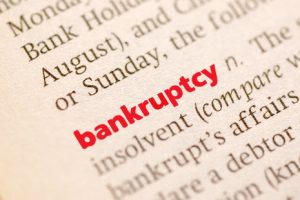Five Exempt Assets In An Illinois Bankruptcy

Even in so-called “liquidation” bankruptcies, debtors get to keep nearly all their assets, because they are immune from creditor seizure under the generous exemption laws in both Illinois and Indiana. That being said, bankruptcy only erases underlying debts, and it does not extinguish either voluntary or involuntary liens. So, if property is secured, debtors must continue making payments and follow all other terms and conditions in the security agreement.
Some assets are entirely exempt regardless of value, but in most cases, proper asset valuation is a key to ensuring that these items remain free from seizure.
Retirement Accounts
In many situations, a 401(k), IRA, or other tax-deferred account is the largest financial asset. In 2014’s Clark v. Rameker, the Supreme Court once again affirmed that these assets are 100 percent exempt in bankruptcy, no matter how much money they contain. The overarching these in bankruptcy cases is that honest but unlucky debtors deserve fresh financial starts, and such starts are impossible without long-term financial security. Furthermore, if a court took away a retirement account, which is usually the product of many months of savings and financial sacrifice, such a move would definitely send the wrong message.
Houses
Both Indiana ($17,600) and Illinois ($15,000) exempt home equity up to certain dollar amounts; these amounts may be higher if the spouses file a joint bankruptcy. If the owners have made faithful payments for several years, the equity amounts are probably near the cap. Under the Bankruptcy Code, debtors must declare the as-is cash sale value of particular assets, and this rule has some nuances with regard to real property.
Arguably, a home’s as-is cash value is the amount of money that a home investor would pay for a no-inspection property purchase, and that amount is usually between 50 and 60 percent of the home’s fair market value or tax appraised value (these two amounts are usually different). An accurate bankruptcy appraisal often reduces the apparent level of equity, thus exempting the entire amount.
Motor Vehicles
Similarly, both Indiana and Illinois have monetary value exemptions, rather than category exemptions, in this area. Most newer vehicles have very high loan values and almost no equity, and most older vehicles have almost no resale value. In either case, they are very unattractive targets for the trustee (person who oversees the bankruptcy on behalf of the judge) to take and sell, especially given the costs of seizing the vehicle, storing it, making any necessary repairs, and bearing the risk of finding a seller.
The trustee has a duty to evaluate nonexempt assets and determine if creditors would benefit from their seizure and sale as opposed to a duty to grab them, and there is a significant difference between the two.
Insurance Benefits
Much like retirement accounts, life insurance and other benefits are categorically exempt, because the debtor made financial sacrifices to build equity in these policies and the funds can provide long-term security essential for fresh starts.
Wild Card
In both Indiana and Illinois, debtors can apply the wildcard exemption to otherwise nonexempt property, including cash in a checking or savings account. The law is even more generous in Illinois, as at least one court has held that current wages are exempt under the Wage Deduction Act.
Count on Experienced Lawyers
All bankruptcy debtors get to keep most or all of their property. For a free consultation with an experienced bankruptcy lawyer in Chicago, contact the Bentz Holguin Law Firm, LLC. Convenient payment plans are available.
Resources:
mcknightsseniorliving.com/news/court-sets-date-to-begin-hearing-arguments-against-joint-employer-change/article/634524/
washingtonpost.com/blogs/where-we-live/post/selling-a-home-to-a-real-estate-investor/2012/12/11/5907944e-40bb-11e2-a2d9-822f58ac9fd5_blog.html?utm_term=.59cf40379cfe


